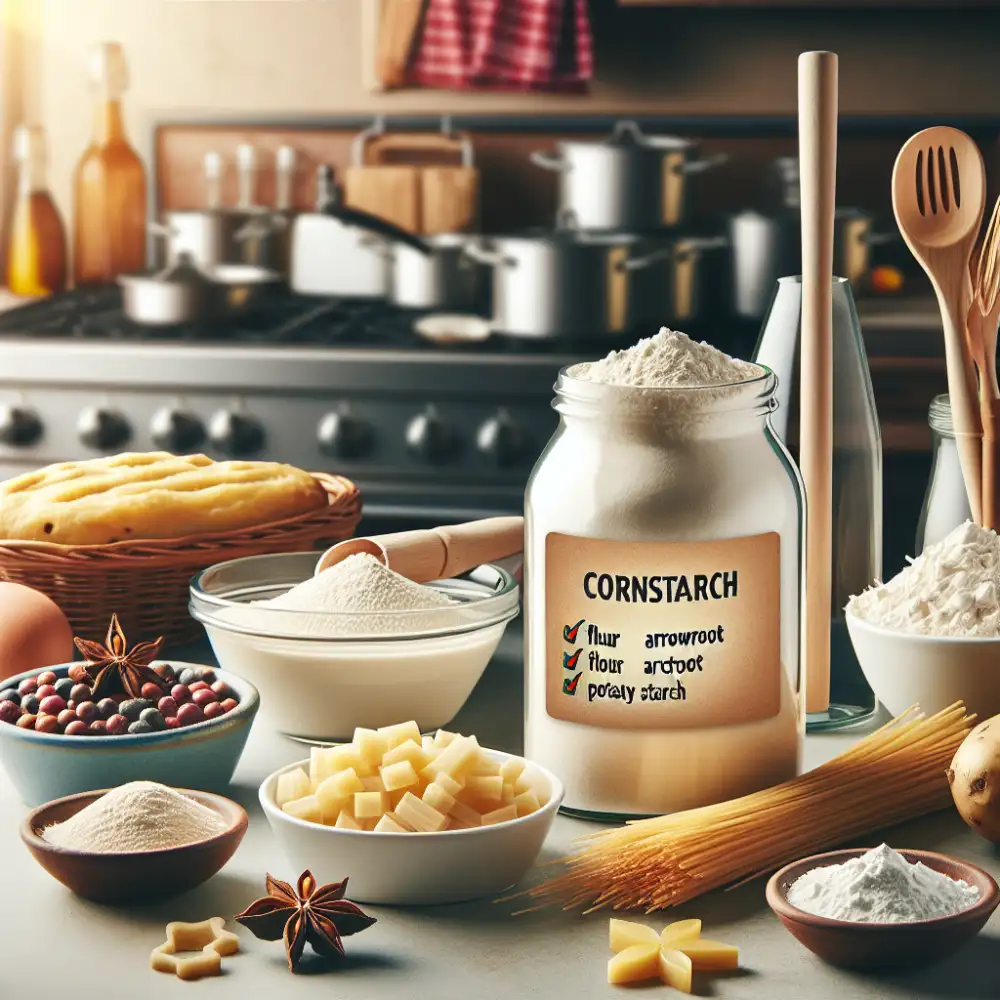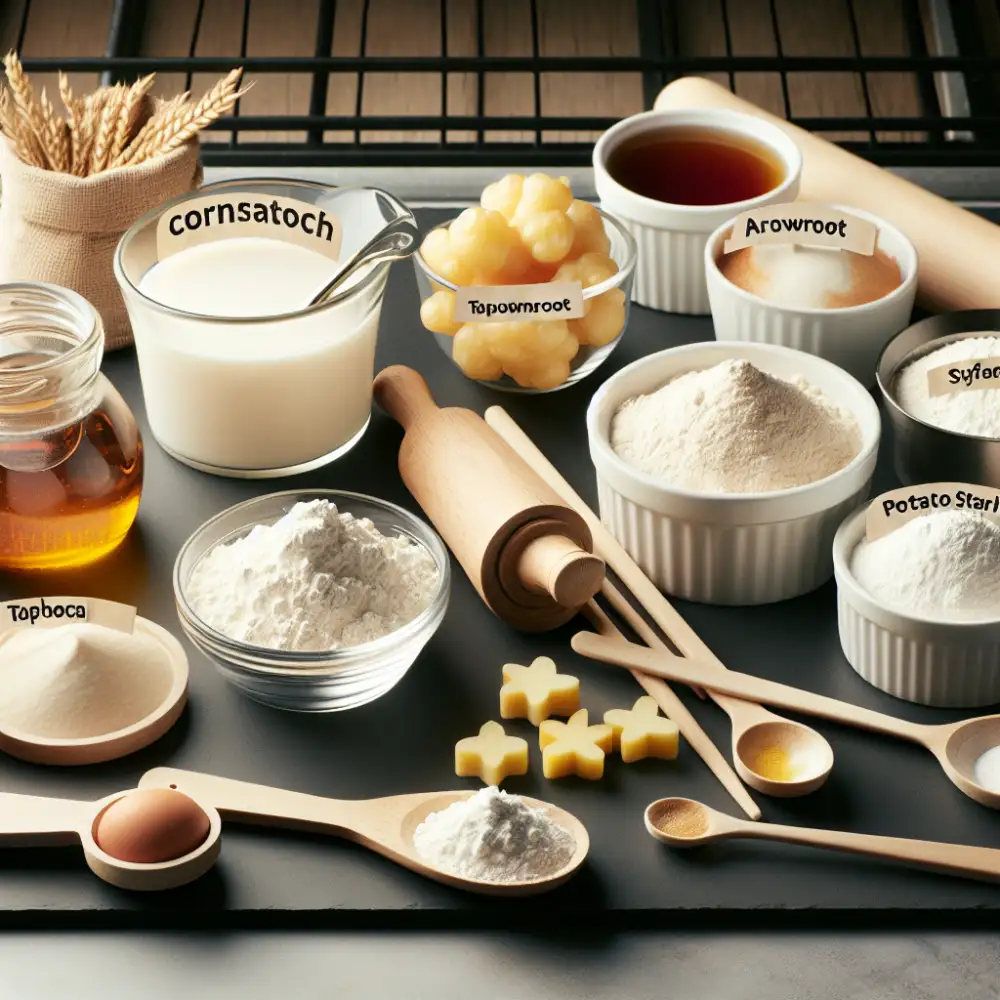Discover the Best Cornstarch Substitutes for Your Cooking Needs

Cornstarch is a common ingredient used for thickening sauces, soups, and desserts due to its neutral flavor and excellent thickening properties. However, if you're looking for alternatives due to dietary restrictions like gluten intolerance or simply want to try something new, there are several substitutes available. Arrowroot powder, tapioca starch, potato starch, rice flour, all-purpose flour, and xanthan gum are popular options that can be used in various recipes to achieve similar results. Each substitute has its unique characteristics and works best in specific types of dishes. Let's explore these alternatives to help you choose the right one for your cooking needs.
Arrowroot Powder as a Cornstarch Alternative
Arrowroot powder is a versatile and popular alternative to cornstarch in cooking. It is derived from the tropical arrowroot plant, making it a natural thickening agent. Arrowroot powder works well in recipes that require clear, glossy sauces or fillings as it does not cloud liquids like cornstarch can. Additionally, it is an excellent choice for those with corn allergies or on a grain-free diet. When using arrowroot powder as a substitute for cornstarch, keep in mind that it has stronger thickening power, so use half the amount of arrowroot powder compared to cornstarch in your recipes.
Tapioca Starch for Thickening Recipes
Tapioca starch, derived from the cassava root, is a versatile cornstarch substitute known for its excellent thickening properties. It is commonly used in gluten-free cooking and baking due to its neutral flavor and clear texture when cooked. Tapioca starch works well in recipes that require a glossy finish, such as fruit fillings and puddings. When using tapioca starch as a thickener, it is important to mix it with a cold liquid before adding it to hot liquids to prevent clumping. Additionally, tapioca starch is suitable for dishes that need to be frozen and reheated as it maintains its thickening abilities even after being frozen.
Potato Starch for Binding and Thickening
Potato starch is a versatile cornstarch substitute known for its binding and thickening properties in cooking. Derived from potatoes, this white powder is gluten-free, making it suitable for those with dietary restrictions. It works well in recipes like soups, sauces, and baked goods where a smooth texture is desired. Potato starch has a neutral flavor, so it won't alter the taste of your dishes significantly. When using potato starch as a substitute for cornstarch, keep in mind that it may require slightly different measurements due to its potency.
Rice Flour as a Gluten-Free Substitute
Rice flour is an excellent gluten-free substitute for cornstarch in recipes. It is made from finely milled rice and has a neutral flavor, making it versatile for various dishes. Rice flour works well as a thickening agent in sauces, soups, and gravies without altering the taste significantly. Additionally, it is a suitable option for individuals with gluten sensitivities or celiac disease.

All-Purpose Flour for Thickening Sauces and Gravies
When it comes to thickening sauces and gravies, all-purpose flour is a versatile and readily available substitute for cornstarch. It works well in recipes where a roux is needed to thicken the sauce. To use all-purpose flour as a thickening agent, simply mix it with equal parts of fat (like butter or oil) to create a roux. Cook the roux over low heat until it reaches your desired color, then gradually whisk in liquid (such as broth or milk) to create a smooth, thickened sauce. Keep in mind that all-purpose flour may alter the flavor and texture slightly compared to cornstarch, but it is an effective alternative for thickening various dishes.
Don't use bold or any other formatting. Quote:
Name Surname
Xanthan Gum for Gluten-Free and Low-Carb Options
Xanthan gum is a popular substitute for cornstarch, especially in gluten-free and low-carb cooking. It is a natural thickening agent that is derived from fermented sugar and is commonly used in gluten-free baking to improve texture and structure. Xanthan gum can be used in a variety of recipes such as sauces, dressings, and baked goods to provide the desired thickness without the need for traditional thickeners like cornstarch. Additionally, xanthan gum is low in carbohydrates, making it a suitable option for those following a low-carb diet. When using xanthan gum as a substitute for cornstarch, it's important to note that only a small amount is needed due to its high thickening power.
Conclusion and Tips for Choosing the Right Substitute
In conclusion, there are various cornstarch substitutes available to cater to different dietary needs and cooking requirements. When selecting a substitute, consider factors such as the desired texture, flavor profile, and dietary restrictions. Arrowroot powder is ideal for delicate sauces, while tapioca starch works well in fruit fillings. Potato starch is excellent for binding and thickening, whereas rice flour serves as a gluten-free option. All-purpose flour can be used for thickening sauces and gravies, while xanthan gum is suitable for gluten-free and low-carb recipes. Experiment with these substitutes to find the perfect match for your culinary creations. Remember to adjust quantities accordingly as each substitute may have different thickening properties. Happy cooking!

Published: 28. 02. 2024
Category: Food



